June 6 stands as one of history’s most eventful days, witnessing the rise and fall of empires, groundbreaking discoveries, and moments that shaped our modern world across centuries of human achievement.

Politics and Government Events on June 6
1944 – Allied Invasion of Normandy Begins
Operation Overlord commenced with the execution of Operation Neptune, commonly known as D-Day, marking the largest seaborne invasion in history. Nearly 160,000 Allied troops crossed the English Channel with massive naval support including 5,000 landing craft and 289 escort vessels.
By day’s end, Allied forces had successfully established footholds on five invasion beaches and begun pushing inland. This monumental operation opened the long-awaited second front in Western Europe, fundamentally altering the course of World War II.
1934 – Securities Exchange Act Signed
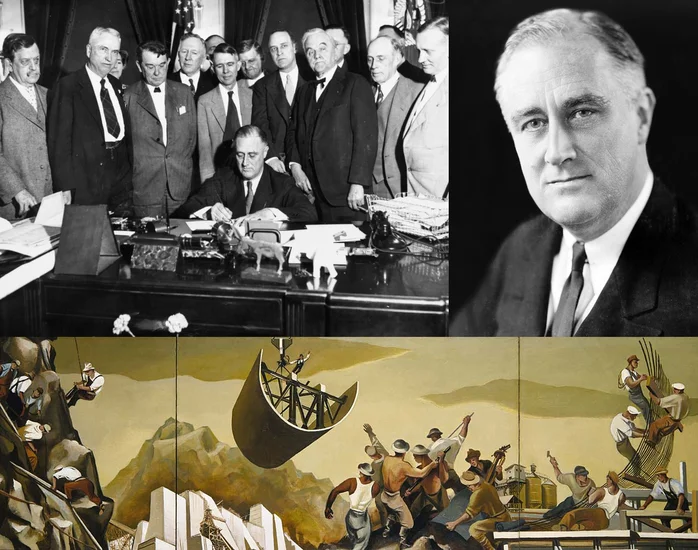
President Franklin D. Roosevelt signed the Securities Exchange Act of 1934 into law, establishing the U.S. Securities and Exchange Commission. This New Deal legislation created comprehensive federal oversight of the stock market and securities trading.
The act responded directly to the financial chaos of the Great Depression by implementing strict regulations on securities markets. The newly formed SEC gained sweeping powers to investigate fraud and enforce transparency in financial markets.
1993 – Mongolia’s First Presidential Election
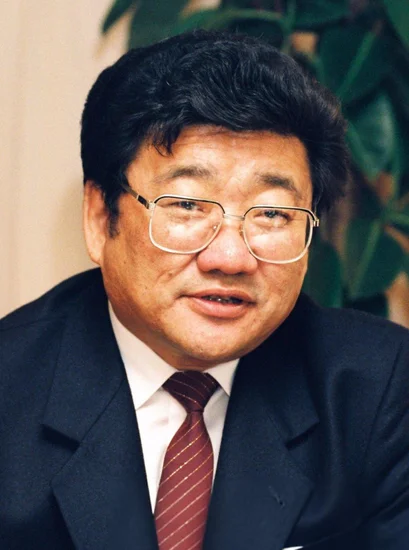
Punsalmaagiin Ochirbat won Mongolia’s inaugural presidential election, marking the country’s transition to democratic governance. This historic vote represented the culmination of Mongolia’s peaceful revolution from communist rule.
The election demonstrated Mongolia’s successful navigation away from Soviet influence toward democratic institutions. Ochirbat’s victory symbolized the nation’s commitment to political reform and modernization.
1975 – Britain Votes to Remain in European Economic Community
British voters decisively chose to continue membership in the European Economic Community with 67% voting in favor. This referendum resolved ongoing political debates about Britain’s relationship with European integration.
The overwhelming margin reflected public acceptance of European cooperation despite initial skepticism. This decision would shape British-European relations for decades, until the Brexit referendum four decades later.
Military and Naval History on June 6
1942 – Battle of Midway Decisive Victory
The United States Navy achieved a crushing victory over the Imperial Japanese Navy at the Battle of Midway, fundamentally shifting momentum in the Pacific Theater. All four Japanese fleet carriers participating—Akagi, Kaga, Sōryū and Hiryū—were destroyed along with heavy cruiser Mikuma.
American forces lost the carrier Yorktown and destroyer Hammann but dealt Japan an irreversible blow. This decisive engagement marked the beginning of American offensive operations across the Pacific and Japan’s irreversible decline.
1944 – Allied Paratroopers Capture Strategic Bridges
Allied paratroopers successfully captured the Caen canal and Orne river bridges during Operation Coup de Main, securing vital infrastructure for the D-Day invasion. These daring nighttime operations prevented German forces from destroying crucial crossing points.
The bridge captures allowed Allied forces to advance inland from the beaches without facing destroyed infrastructure. This tactical success demonstrated the effectiveness of airborne operations in modern warfare.
1918 – Marines Suffer Heavy Casualties at Belleau Wood
The U.S. Marine Corps endured its worst single-day casualties during the Battle of Belleau Wood while attempting to recapture strategic positions at Château-Thierry. These losses represented the highest Marine casualties in a single day until the Battle of Tarawa in 1943.
The fierce fighting at Belleau Wood demonstrated American resolve on the Western Front during World War I. Marine sacrifices during this engagement became legendary, earning the Corps lasting recognition for tenacity under fire.
1982 – Lebanon War Begins
Israeli forces under Defense Minister Ariel Sharon launched Operation Peace for the Galilee, invading southern Lebanon and beginning the 1982 Lebanon War. The invasion ultimately reached northward to the Lebanese capital of Beirut.
This military operation aimed to eliminate Palestinian Liberation Organization bases in Lebanon but expanded into a broader regional conflict. The war’s consequences would reshape Middle Eastern politics and Israeli-Lebanese relations for decades.
Science and Discovery Milestones on June 6
1912 – Novarupta Volcanic Eruption Begins

The Novarupta volcano in Alaska began erupting in what would become the 20th century’s largest volcanic event. This massive eruption released enormous quantities of ash and volcanic material across vast distances.
The eruption’s scale dwarfed other volcanic events of the modern era, affecting global weather patterns. Scientific study of Novarupta provided crucial insights into volcanic processes and their environmental impacts.
1971 – Soyuz 11 Launches on Fatal Mission

The Soviet Union launched Soyuz 11 carrying cosmonauts Georgy Dobrovolsky, Vladislav Volkov, and Viktor Patsayev on what would become a tragic space mission. The crew successfully completed their orbital objectives but faced disaster during return.
All three cosmonauts died from uncontrolled decompression during re-entry on June 29, highlighting the extreme dangers of space exploration. This tragedy led to significant safety improvements in spacecraft design and emergency procedures.
2002 – Asteroid Explodes Over Mediterranean
A near-Earth asteroid approximately ten meters in diameter exploded over the Mediterranean Sea between Greece and Libya with tremendous force. The explosion generated an estimated 26 kilotons of energy, slightly exceeding the Nagasaki atomic bomb’s power.
This Eastern Mediterranean event demonstrated the ongoing threat posed by space objects entering Earth’s atmosphere. The explosion provided valuable data about asteroid composition and the frequency of such impacts.
2024 – SpaceX Starship Test Flight Launches
SpaceX conducted its fourth integrated flight test of the Starship vehicle system, advancing development of the world’s most powerful rocket. This test represented another milestone in private space exploration and Mars mission preparation.
The IFT-4 mission tested critical systems needed for future lunar and interplanetary missions. SpaceX’s continued progress demonstrated the growing role of commercial companies in space exploration.
Cultural and Arts Events on June 6
1933 – First Drive-In Theater Opens
The world’s first drive-in theater opened in Camden, New Jersey, revolutionizing entertainment and automobile culture in America. This innovation combined the growing popularity of movies with Americans’ love affair with their cars.
The drive-in concept spread rapidly across the United States, becoming a defining feature of suburban leisure culture. These outdoor theaters provided families with affordable entertainment while maintaining privacy and convenience.
1961 – Carl Gustav Jung Dies
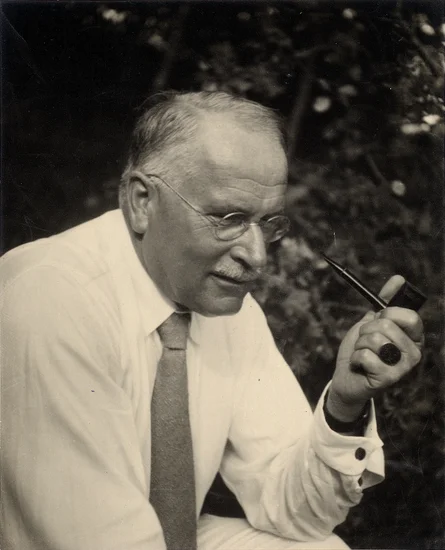
The renowned Swiss psychiatrist and psychotherapist Carl Gustav Jung passed away, leaving behind revolutionary contributions to psychology and human understanding. His theories of the collective unconscious and psychological archetypes transformed modern psychology.
Jung’s analytical psychology influenced not only clinical practice but also literature, anthropology, and religious studies. His concepts of introversion, extraversion, and individuation became fundamental to personality theory.
1962 – Yves Klein Dies
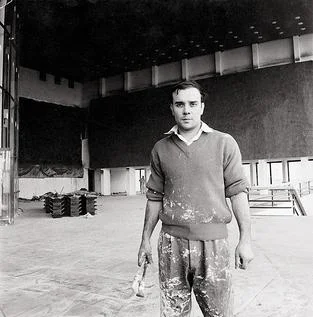
French painter Yves Klein died at the young age of 34, cutting short a brilliant artistic career that had already revolutionized contemporary art. Klein pioneered new artistic techniques and became famous for his distinctive International Klein Blue color.
His innovative approaches to color, space, and conceptual art influenced generations of artists. Klein’s brief but intense career demonstrated how artistic vision could challenge conventional boundaries and create entirely new aesthetic experiences.
Religious and Social Events on June 6
1966 – James Meredith Shot During Civil Rights March

African-American civil rights activist James Meredith was wounded in an ambush by white sniper James Aubrey Norvell during his March Against Fear. Photographer Jack R. Thornell captured the shooting, creating an iconic image that would win the 1967 Pulitzer Prize.
The attack on Meredith, who had integrated the University of Mississippi, galvanized the civil rights movement. The photograph of his shooting became a powerful symbol of the violence faced by those fighting for racial equality.
1985 – Josef Mengele’s Remains Discovered
The grave of “Wolfgang Gerhard” was opened in Embu, Brazil, revealing remains later proven to belong to Josef Mengele, Auschwitz’s infamous “Angel of Death.” Mengele had apparently drowned while swimming in February 1979, ending decades of international pursuit.
The discovery closed one of history’s most notorious manhunts for Nazi war criminals. Mengele’s identification provided some measure of closure for Holocaust survivors and demonstrated the persistence of efforts to bring war criminals to justice.
1968 – Robert F. Kennedy Assassinated
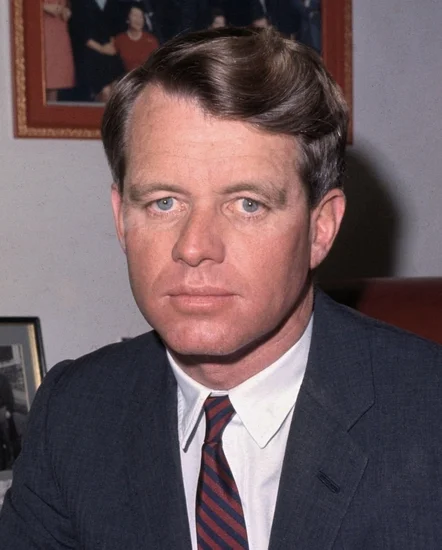
Senator Robert F. Kennedy died from gunshot wounds sustained during his assassination at the Ambassador Hotel in Los Angeles. Kennedy had just won the California Democratic primary and appeared positioned for the presidential nomination.
His death devastated the civil rights movement and anti-war effort, depriving America of a charismatic leader during turbulent times. Kennedy’s assassination marked another tragic chapter in the violence that characterized the 1960s.
Business and Economic Events on June 6
1925 – Chrysler Corporation Founded
Walter Chrysler established the original Chrysler Corporation from the remains of the Maxwell Motor Company, creating one of America’s major automotive manufacturers. This founding represented Chrysler’s vision of competing directly with Ford and General Motors.
The new corporation introduced innovative engineering and stylish designs that quickly gained market share. Chrysler’s success demonstrated how skilled leadership could transform struggling companies into industry leaders.
1976 – J. Paul Getty Dies
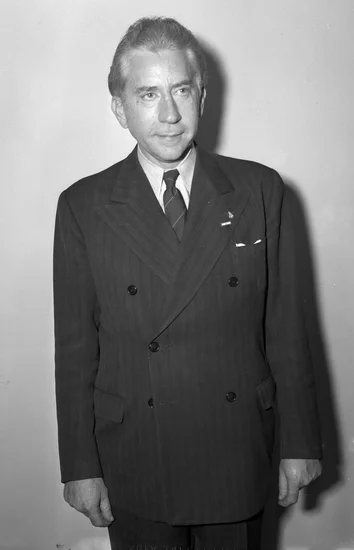
Oil tycoon J. Paul Getty, founder of the Getty Oil Company, passed away as one of the world’s wealthiest individuals. Getty had built his fortune through shrewd oil investments and international business ventures.
His death marked the end of an era in American business, as Getty exemplified the independent oil baron who built vast wealth through personal initiative. The Getty legacy continued through his foundation’s support of arts and education.
1941 – Louis Chevrolet Dies
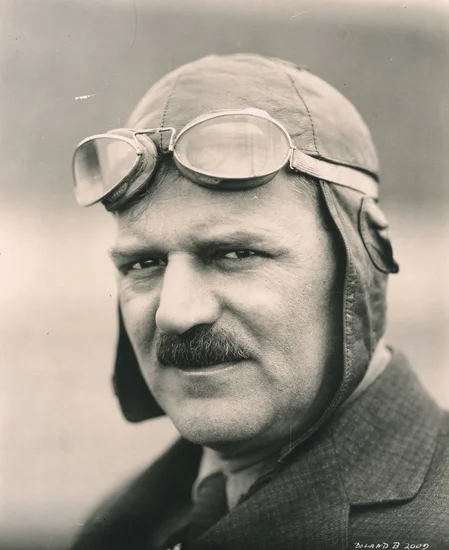
Swiss-American race car driver and businessman Louis Chevrolet died, leaving behind the automotive legacy that bore his name. Chevrolet had co-founded both the Chevrolet Motor Company and Frontenac Motor Corporation.
His contributions to automotive design and racing technology influenced American car manufacturing for decades. Despite losing control of his company to William Durant, Chevrolet’s name became synonymous with American automotive excellence.
Transportation and Infrastructure on June 6
1971 – Hughes Airwest Flight 706 Collision
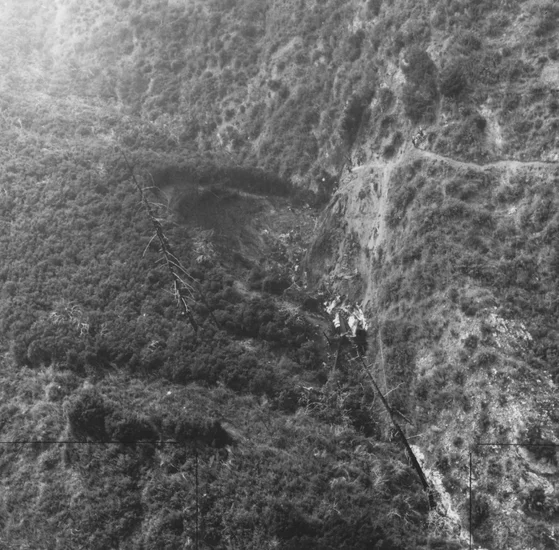
Hughes Airwest Flight 706 collided with a U.S. Marine Corps McDonnell Douglas F-4 Phantom II over the San Gabriel Mountains, killing all 50 people aboard the commercial aircraft. This tragic accident highlighted the dangers of mixing civilian and military aviation in shared airspace.
The collision prompted significant changes in air traffic control procedures and radar coverage. Aviation authorities implemented new safety protocols to prevent similar accidents between civilian and military aircraft.
1994 – China Northwest Airlines Crash

China Northwest Airlines Flight 2303 crashed near Xi’an Xianyang International Airport, killing all 160 people on board. This disaster represented one of the deadliest aviation accidents in Chinese history at the time.
The crash prompted extensive investigation into aviation safety procedures and aircraft maintenance standards. Chinese aviation authorities implemented enhanced safety measures to prevent similar tragedies.
1992 – Copa Airlines Flight 201 Disaster

Copa Airlines Flight 201 broke apart in mid-air before crashing into Panama’s Darién Gap, killing all 47 people aboard. The aircraft’s structural failure during flight raised serious questions about maintenance and safety procedures.
This accident highlighted the challenges of aviation safety in Central America and the need for improved maintenance standards. The remote crash location in the Darién Gap complicated rescue and investigation efforts.
Sports and Recreation on June 6
1985 – Björn Borg Born

Swedish tennis legend Björn Borg was born on this date, beginning a life that would revolutionize professional tennis. Borg’s eventual dominance included eleven Grand Slam singles titles and five consecutive Wimbledon championships.
His cool demeanor and exceptional baseline play earned him the nickname “Ice Man” and transformed tennis into a global spectacle. Borg’s rivalry with John McEnroe became one of sports’ most compelling narratives.
1944 – Tommie Smith Born

American sprinter Tommie Smith was born, destined to become an Olympic champion and civil rights icon. Smith won the 1968 Olympic 200-meter gold medal in world record time while making history beyond athletics.
His raised-fist salute during the medal ceremony became one of the most powerful protests in Olympic history. Smith’s courage in using his platform for social justice inspired generations of athlete-activists.
1985 – Becky Sauerbrunn Born

American soccer player Becky Sauerbrunn was born, eventually becoming one of women’s soccer’s most accomplished defenders. She won the FIFA Women’s World Cup twice and earned Olympic gold with the United States national team.
Her leadership and defensive excellence helped establish American dominance in women’s international soccer. Sauerbrunn’s career exemplified the growth and success of women’s professional soccer.
Notable Births on June 6
1901 – Sukarno Born

Indonesian engineer and politician Sukarno was born, destined to become Indonesia’s first President and a leader of the independence movement. His engineering background provided technical expertise that proved valuable in nation-building efforts.
Sukarno’s charismatic leadership united diverse Indonesian populations under a single national identity. His political philosophy of Pancasila became the foundation of Indonesian governance and remains influential today.
1906 – Max August Zorn Born
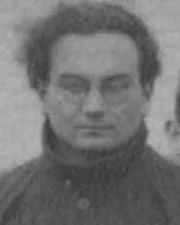
German mathematician Max August Zorn was born, later becoming famous for Zorn’s Lemma, a fundamental principle in mathematical logic. His work in abstract algebra and set theory influenced multiple branches of mathematics.
Zorn’s contributions to mathematical foundations helped establish modern algebraic structures. His lemma became an essential tool for mathematicians working in topology, algebra, and functional analysis.
1917 – Kirk Kerkorian Born
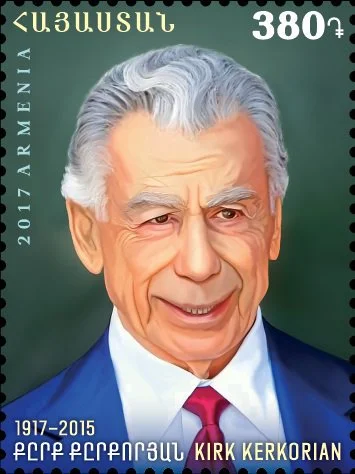
American businessman Kirk Kerkorian was born, later founding the Tracinda Corporation and becoming one of Las Vegas’s most influential figures. His business acumen transformed both the entertainment and automotive industries.
Kerkorian’s investments in MGM and major automotive companies demonstrated his ability to identify and capitalize on emerging opportunities. His philanthropic efforts supported education and Armenian cultural preservation.
1923 – V. C. Andrews Born

American author V. C. Andrews was born, eventually becoming famous for gothic family sagas that captivated millions of readers. Her novel “Flowers in the Attic” became a cultural phenomenon and spawned numerous sequels.
Andrews’ dark, psychological narratives explored themes of family secrets and dysfunction with unprecedented frankness. Her work influenced popular culture and established new directions in contemporary fiction.
1932 – David Scott Born

American astronaut David Scott was born, later commanding the Apollo 15 mission and becoming the seventh person to walk on the Moon. His engineering background and military experience made him ideal for space exploration.
Scott’s lunar mission included the first use of the lunar rover, extending exploration capabilities significantly. His scientific contributions during moonwalks advanced understanding of lunar geology and formation.
1943 – Richard Smalley Born

American chemist Richard Smalley was born, later winning the 1996 Nobel Prize in Chemistry for discovering fullerenes. His groundbreaking work opened entirely new fields in materials science and nanotechnology.
Smalley’s research on carbon structures led to revolutionary applications in medicine, electronics, and materials engineering. His discoveries laid the foundation for nanotechnology’s emergence as a transformative scientific field.
1947 – Robert Englund Born
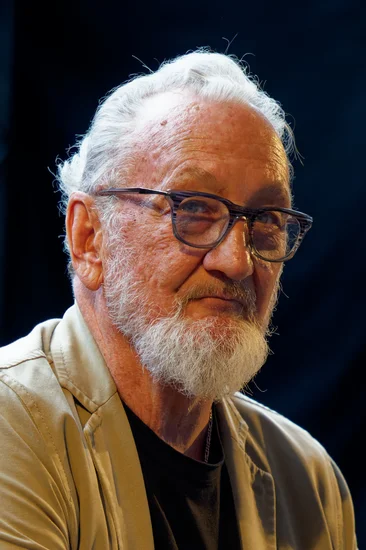
American actor Robert Englund was born, later becoming famous for his portrayal of Freddy Krueger in the “Nightmare on Elm Street” horror film series. His theatrical background prepared him for creating one of cinema’s most memorable villains.
Englund’s performance as Krueger became iconic in horror cinema, influencing countless films and popular culture references. His ability to blend menace with dark humor made the character both terrifying and entertaining.
1953 – Paul Giamatti Born

American actor Paul Giamatti was born, later becoming one of cinema’s most respected character actors. His ability to portray complex, often neurotic characters earned him critical acclaim and numerous award nominations.
Giamatti’s performances in films like “Sideways” and “American Splendor” demonstrated his range and emotional depth. His work elevated supporting roles into memorable, fully realized characters.
Notable Deaths on June 6
1916 – Yuan Shikai Dies
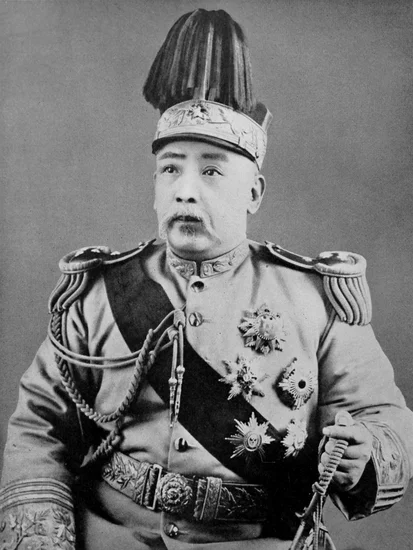
Chinese general and politician Yuan Shikai, the second President of the Republic of China, died after a controversial political career. His attempts to restore imperial rule and declare himself emperor had failed spectacularly.
Yuan’s death marked the end of efforts to establish strong central authority in early Republican China. His passing left China fragmented among competing warlords, contributing to decades of political instability.
1922 – Lillian Russell Dies
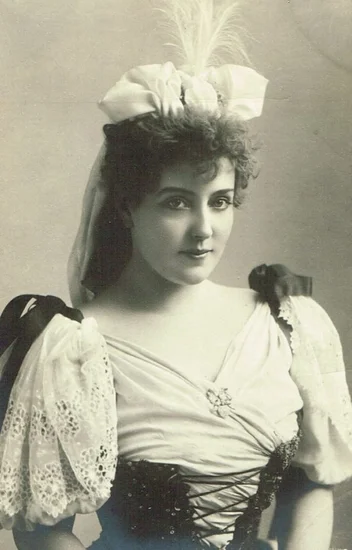
American actress and singer Lillian Russell died, ending a career that had made her one of America’s first entertainment superstars. Her beauty and theatrical talent had captivated audiences for decades.
Russell’s career spanned the golden age of American theater and early cinema. Her success demonstrated how performers could achieve national celebrity status through talent and charismatic stage presence.
1948 – Louis Lumière Dies
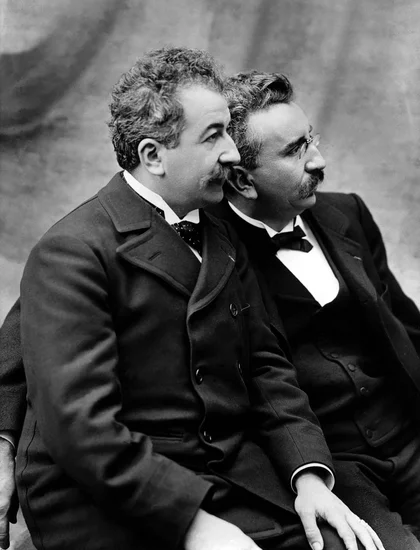
French film director, producer, and screenwriter Louis Lumière died, leaving behind pioneering contributions to cinema history. Along with his brother Auguste, he had invented the cinematograph and created some of cinema’s first films.
The Lumière brothers’ technical innovations made commercial cinema possible and established filmmaking as both art and industry. Their early films captured everyday life with unprecedented realism and immediacy.
1955 – Max Meldrum Dies
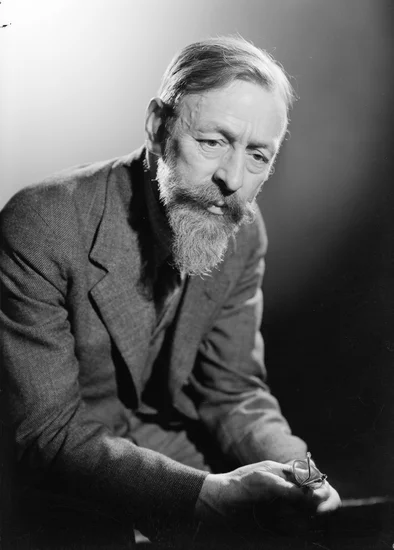
Scottish-Australian painter and educator Max Meldrum died after establishing influential art theories and teaching methods. His scientific approach to painting emphasized tonal relationships and direct observation.
Meldrum’s teaching influenced generations of Australian artists and helped establish distinctly Australian approaches to landscape painting. His theories about tone and color relationships became fundamental to Australian art education.
2005 – Anne Bancroft Dies

American film actress Anne Bancroft died, ending a distinguished career that included winning the 1963 Academy Award for Best Actress for “The Miracle Worker.” Her powerful performances had defined dramatic excellence for decades.
Bancroft’s versatility allowed her to excel in both dramatic and comedic roles throughout her career. Her memorable performances in films like “The Graduate” made her an icon of American cinema.
2013 – Jerome Karle Dies
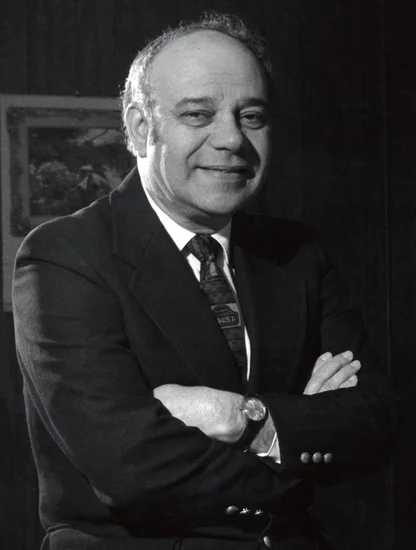
American crystallographer Jerome Karle died after receiving the 1985 Nobel Prize in Chemistry for research into molecular structures of chemical compounds. His work revolutionized understanding of crystal structures and molecular arrangements.
Karle’s mathematical methods for determining crystal structures became fundamental tools in chemistry and materials science. His contributions enabled researchers to understand molecular behavior with unprecedented precision.
Holidays and Observances on June 6
D-Day Invasion Anniversary
June 6 marks the anniversary of the D-Day landings in Normandy, commemorating the Allied invasion that began the liberation of Western Europe. Military ceremonies and memorial services honor the courage and sacrifice of those who participated.
Veterans organizations and military historians use this date to educate new generations about World War II’s pivotal moments. The anniversary serves as a reminder of international cooperation in defending democratic values.
National Day of Sweden

Sweden celebrates its National Day on June 6, marking the end of the Danish-ruled Kalmar Union and the coronation of King Gustav Vasa. This holiday celebrates Swedish independence and national identity.
The celebration includes flag ceremonies, traditional music, and cultural events throughout Sweden. Swedish communities worldwide use this date to celebrate their heritage and maintain cultural connections.
Memorial Day in South Korea

South Korea observes Memorial Day on June 6, honoring those who died serving their country in military conflicts. The day includes ceremonies at the National Cemetery and moments of national remembrance.
This solemn observance reflects South Korea’s history of conflict and the sacrifices made for national freedom. Memorial services emphasize the importance of peace and the cost of maintaining democracy.
